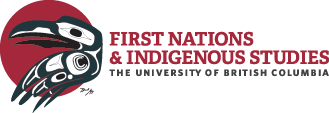Aboriginal peoples have consistently responded to and actively resisted against unilateral, top-down imposition of government policies that impact their rights and title. We have grouped together several key examples of these actions and initiatives in this section entitled Community and Politics. In order to aid your understanding of these topics, we also recommend visiting our sections on Aboriginal rights and title. We acknowledge that this section is by no means definitive, but instead provides a starting point for those interested in understanding the myriad ways in which Aboriginal peoples have organized for increased political representation.
In this section
Political organizations
- The Indian Homemakers Association of B.C. was a political organization formed by Indian women with the support of the Department of Indian Affairs. It was initially a way for women on reserves to gather and support each other in domestic tasks, but over time became increasingly political in response to the difficult living conditions on reserves. Some claim that the IHA was the first province-wide Aboriginal organization in B.C., and served as a template for the Union of BC Indian Chiefs.
- The Union of BC Indian Chiefs is a non-profit political organization representing numerous First Nations across BC in order to protect and further Aboriginal title and rights. The Union has also published news sources, runs resource centres (including an extensive online resource), and continues to work with and advise provincial government policies regarding Aboriginal relations, title, and rights.
- There are many other influential Aboriginal political organizations in Canada that we have not yet profiled on Indigenous Foundations. This list is by no means definitive. Some of these organizations include:
The Assembly of First Nations – http://www.afn.ca
The First Nations Summit – http://www.fns.bc.ca/
The Inuit Tapiriit Kanatami – http://www.itk.ca
The Native Women’s Association of Canada – http://www.nwac.ca
The Metis National Council – http://www.metisnation.ca/
Pauktuutit – http://www.pauktuutit.ca
Direct Actions
Instances of direct action, such as blockades, are frequently presented to and interpreted by the public as being a nuisance, caused by radical trouble-makers. However, in general, Aboriginal groups resort to direct action only once formal channels, such as the court system, have failed them. Blockades and direct actions indicate the level of desperation many communities reach when they attempt for their concerns to be heard and their needs to be met.
- The Constitution Express refers to a movement in 1980 and again in 1981 in which Aboriginal groups chartered two trains across Canada, from Vancouver to Ottawa, to demand inclusion of Aboriginal rights in the soon-to-be-patriated Canadian constitution. The Constitution Express garnered international attention and continued on to New York, London, and Geneva. The Constitution Express was ultimately successful, resulting in the inclusion of Aboriginal peoples in the constitution.
- The Gustafsen Lake standoff occurred in 1995 near Williams Lake, B.C. due to a land dispute between First Nations Sundancers and an American rancher. A peaceful protest quickly escalated into a controversial Canadian military deployment and, many argue, a serious violation of Canadian citizens’ rights and freedoms. It remains a controversial yet fascinating case study of government responses to Aboriginal protests, and of media representations of First Nations.
- The Ipperwash Crisis occurred in Ontario in 1995 after the Ontario government expropriated culturally and spiritually significant land belonging to the Stony Point First Nation. People from the Stony Point First Nation set up a camp to occupy the land, and the Ontario Provincial Police responded by raiding the camp and killing an innocent man.
Political Figures
- George Manuel was a prominent political leader who held a number of influential roles in his career, including chief of the Neskonlith Indian Band of the Shuswap First Nation, president of the North American Indian Brotherhood, president of the Union of BC Indian Chiefs, and founder of the World Council of Indigenous Peoples. Although he passed away in 1989, Manuel continues to be an influential figure in Aboriginal politics today.

